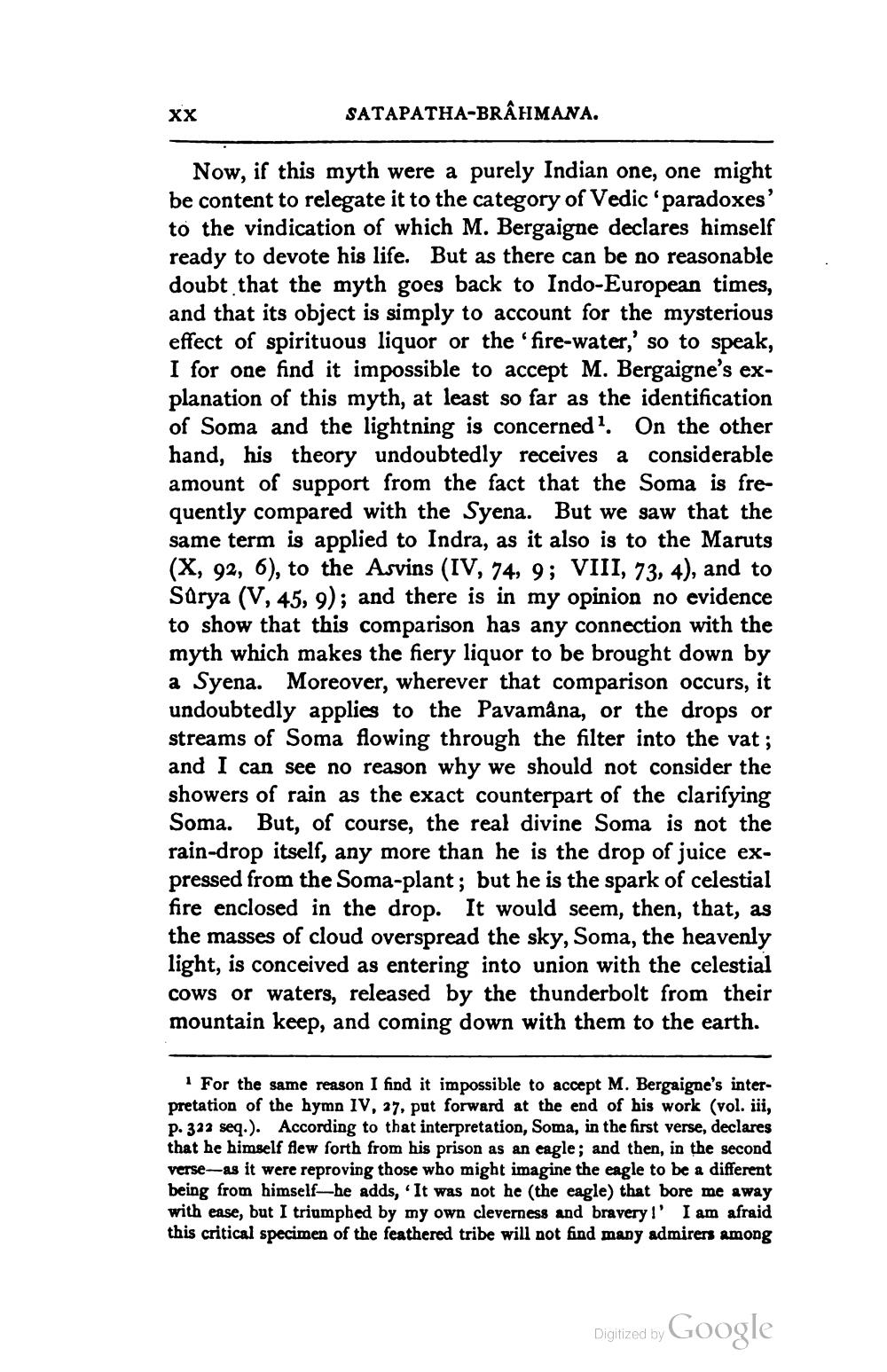________________
xx
SATAPATHA-BRAHMANA.
Now, if this myth were a purely Indian one, one might be content to relegate it to the category of Vedic 'paradoxes' to the vindication of which M. Bergaigne declares himself ready to devote his life. But as there can be no reasonable doubt that the myth goes back to Indo-European times, and that its object is simply to account for the mysterious effect of spirituous liquor or the fire-water,' so to speak, I for one find it impossible to accept M. Bergaigne's explanation of this myth, at least so far as the identification of Soma and the lightning is concerned. On the other hand, his theory undoubtedly receives a considerable amount of support from the fact that the Soma is frequently compared with the Syena. But we saw that the same term is applied to Indra, as it also is to the Maruts (X, 92, 6), to the Asvins (IV, 74, 9; VIII, 73, 4), and to Surya (V, 45, 9); and there is in my opinion no evidence to show that this comparison has any connection with the myth which makes the fiery liquor to be brought down by a Syena. Moreover, wherever that comparison occurs, it undoubtedly applies to the Pavamâna, or the drops or streams of Soma flowing through the filter into the vat; and I can see no reason why we should not consider the showers of rain as the exact counterpart of the clarifying Soma. But, of course, the real divine Soma is not the rain-drop itself, any more than he is the drop of juice expressed from the Soma-plant; but he is the spark of celestial fire enclosed in the drop. It would seem, then, that, as the masses of cloud overspread the sky, Soma, the heavenly light, is conceived as entering into union with the celestial cows or waters, released by the thunderbolt from their mountain keep, and coming down with them to the earth.
1 For the same reason I find it impossible to accept M. Bergaigne's interpretation of the hymn IV, 27, put forward at the end of his work (vol. iii, P. 322 seq.). According to that interpretation, Soma, in the first verse, declares that he himself flew forth from his prison as an eagle; and then, in the second verse--as it were reproving those who might imagine the eagle to be a different being from himself-he adds, 'It was not he (the eagle) that bore me away with ease, but I triumphed by my own cleverness and bravery!' I am afraid this critical specimen of the feathered tribe will not find many admirers among
Digitized by Google




